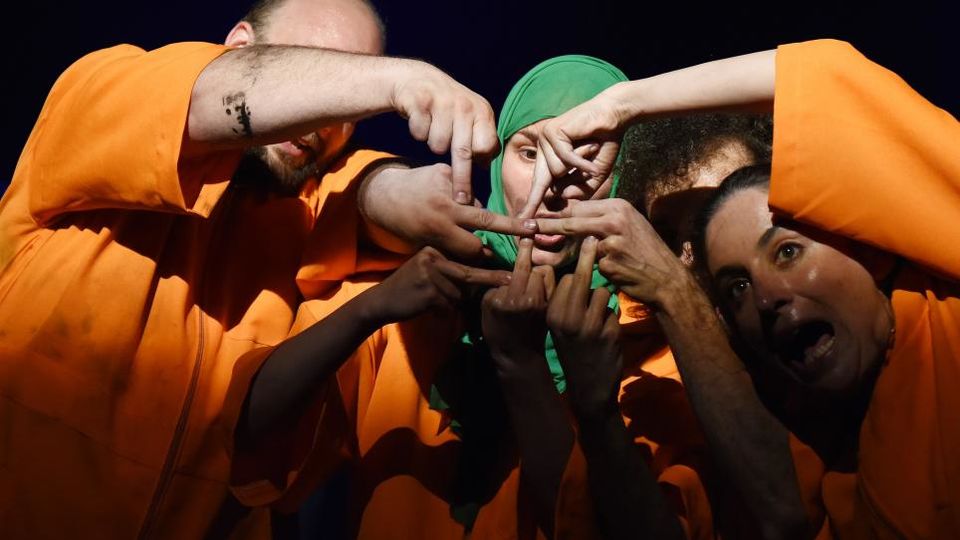This event has passed

2018 STR Edward Gordon Craig Lecture by Oliver Frljic: The Representational Weaknesses of Democracy and Theatre in the Early 21st Century
Oliver Frljić’s work as a director has been characterised by a committed exploration of the intersections between the political and the theatrical. Flags, crosses, disputed maps and other symbolically charged imagery often provide central points of reference in his productions which are frequently intended to tackle taboos and therefore open up uncomfortable but necessary discussions.
In this first public appearance in the UK, Frljić will reflect on the ways his recent, controversial productions (Our Violence and Your Violence,The Curse and Gorki – an Alternative for Germany?) - have used the theatrical medium as a performative tool in a broader social arena. Frljić will also discuss the overlaps and intersections of political and theatrical representation in his work, examining the ways in which the 21st century has revealed some deep crises of democracy as a form of political representation.
About Oliver Frljic
Oliver Frljic is a theatre director and scenographer. Born on 31st of March 1976 in Travnik (Bosnia and Herzegovina), he currently lives in Croatia but his sense of belonging is broader than the cultural denominations that became available following the processes of national homogenization in the aftermath of Yugoslavia.
His work has been presented in various international festivals and theatres, including: Wiener Festwochen (Vienna), Kunstenfestivaldesarts (Brussels), Dialog (Wroclaw), Festival TransAmériques (Montreal), Neue Stücke aus Europa (Wiesbaden), Bitef (Belgrade), La MaMa (New York)…
His production Damned be the Traitor of his Homeland, which premiered in Slovenian Youth Theatre in 2010, is the Slovenian touring record holder with more than 60 international guest performances to date.
Often referring to Aeschylus’s The Persians as a key source of inspiration, Frljić uses the concept of counter-memory to present those parts of history that are not present or are suppressed by official narratives, simultaneously giving voice to those who are often invisible or underrepresented in society.
His work in ex-Yugoslav countries often deals with devastating effects of war, nationalism, the rise of ultra-wing movements, self-victimization, democratic deficit and other anomalies of those societies. Frljić’s performance I Hate the Truth is the analysis of the effects of those phenomena on his own family.
In 2013, Frljić production of Un-divine Comedy at the renowned Stary Teatr in Krakow, which focused on the topic of Polish antisemitism, was cancelled by then theatre’s director Jan Klata. Although not presented, this production was labelled by some Polish critics as the theatre event of the year.
Between 2014 and 2016 Frljić was general director of the Croatian National Theatre in Rijeka. His mandate was dedicated to the questioning of the concept and role of national theatres in the 21st century.
Frljić’s 2016 production The Curse in Warsaw’s Teatr Powszechny, loosely based on the play with the same name by Stanisław Wyspiański, generated strong reactions in Polish society. Almost every performance of this production is accompanied by pro et contra protests in front of the theatre. Polish theatre director Krzysztof Warlikowski openly declared his support for the production of The Curse.
Frljić is the artistic coordinator for the theatre program of the Rijeka European Capital of Culture 2020 and the curator of the last edition of Malta Festival in Poznan (2017).
This event is supported by the Society of Theatre Research (STR) and the Arts and Humanities Research Council (AHRC).
Photo: Alexi Pelekanos. Commissioned by WienerFestwochen 2016
